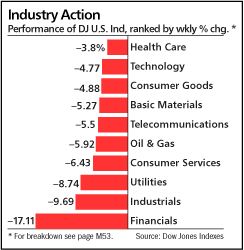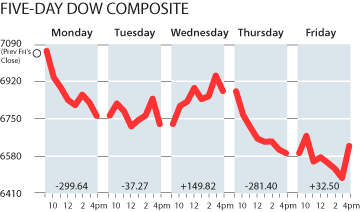By Paul Tracy
Visa (NYSE: V), like its main rival MasterCard (NYSE: MA), is not a bank and it does not make loans, assume credit risk or set interest rates on credit cards -- the actual loan is made by the bank or consumer credit firm that issues the card. Rather, Visa simply handles the processing of card payments made with Visa branded cards. Visa derives revenues in two main ways ways: fees charged to merchants every time a payment is processed, and the licensing fees it charges banks for the use of its "Visa" brand.
Visa's main competitive advantage is its size and the widespread acceptance of its cards. Specifically, Visa cards are accepted by more merchants than any other brand, including American Express (NYSE: AXP) and MasterCard.
Visa enjoys a dominant share of global credit card processing volume. Of the roughly $6 trillion in total transactions processed by the six largest payment processing firms in 2006, Visa held a 55% share. That compares to just 32% for its main rival, MasterCard. And in terms of the total number of transactions, Visa held a 60% share in 2006 against MasterCard's 31%. As a result of this dominance, banks want to license the Visa brand and consumers want to hold Visa cards to ensure widespread acceptance.
Going forward, Visa should continue to benefit from two main catalysts: the overall increase in the use of electronic payments and strong growth in emerging markets. As for the first point, consumers all over the world are increasingly switching from cash and check payments to more convenient credit card and debit card transactions. Electronic payments are simply faster, more secure, and create less paperwork.
And while electronic payments are still growing nicely in the developed world, growth in emerging markets is even more impressive. Consider that due to rapid economic growth in recent years a growing number of consumers in markets like China and India have enough income to take out their first credit cards. In many such countries, consumers are using electronic payments and are foregoing checks entirely. As consumer spending in these rapidly growing economies picks up steam, so will the volume of credit card transactions.
For example, the dollar volume of Visa transactions in the U.S. grew at a +12% annualized pace from 2000 to 2006. However, in Asia and Latin America, transaction volumes grew at +18% and +21%, respectively, over the same time period. According to Visa's registration statement with the SEC, the company expects transaction growth in emerging markets to accelerate and to continue to exceed growth in the developed world through 2012. Visa has been adding new merchants and banks to its network in key emerging markets such as China and India; it is particularly well placed to grow in these markets in the coming years.
Visa's main competitor, MasterCard, has been one of the most successful IPOs of the past few years. And while the stock saw a nice first-day pop, that gain wasn't fleeting -- the stock has soared +380% since the closing bell on its first day of trading.
And Visa is the dominant player in the global payment processing business, so it will benefit even more from the same positive trends as MA.
Subscribe to:
Post Comments (Atom)



No comments:
Post a Comment